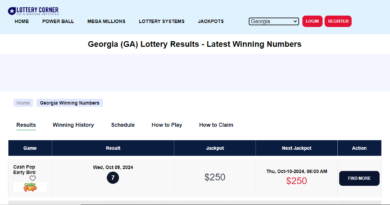Impact of Wage Garnishments on Paystubs
Managing payroll can be a daunting task for both employers and employees. One significant aspect that complicates this process is wage garnishment. When a court orders an employer to withhold a portion of an employee’s earnings to pay off a debt, this action is known as wage garnishment. It’s a scenario that has wide-ranging effects on an individual’s financial well-being and is reflected in their paystub.
Understanding Wage Garnishments
Wage garnishment typically arises from unpaid debts such as child support, taxes, student loans, or credit card balances. When a creditor successfully obtains a court order, the employer must deduct a specific amount from the employee’s paycheck until the debt is satisfied. This mandatory deduction is indicated on the employee’s pay stub.
The impact of wage garnishments on paystubs can be profound. These deductions reduce the employee’s take-home pay and affect their tax calculations, benefits, and overall financial planning. For employers, accurately processing these garnishments and reflecting them correctly on paystubs is crucial to ensure compliance and maintain transparency.
The Role of Paystubs
Paystubs are essential documents that provide detailed information about an employee’s earnings, deductions, and net pay. They serve as proof of income and are vital for personal record-keeping, tax filing, and financial planning. When wage garnishments occur, they must be listed on the paystub to ensure the employee understands the deductions.
A standard paystub includes the following:
- Gross wages: Total earnings before any deductions.
- Federal and state taxes: Income tax withheld based on the employee’s W-4 form.
- Other deductions may include health insurance premiums, retirement contributions, and wage garnishments.
- Net pay: The amount the employee takes home after all deductions.
Why Accurate Paystubs Matter
Accurate paystubs are critical for several reasons. They help employees keep track of their earnings and deductions, facilitate dispute resolution, and ensure compliance with legal requirements. Errors on paystubs can lead to misunderstandings, financial issues, and even legal consequences. Therefore, employers and employees must prioritize the accuracy and clarity of these documents.
Challenges with Wage Garnishments on Paystubs
Implementing wage garnishments correctly can be challenging. Employers must:
- Comply with court orders: Failure to withhold the correct amount can result in penalties.
- Calculate deductions accurately: This includes understanding the maximum allowable garnishment percentages defined by law.
- Communicate clearly: Employees should be informed about the garnishment process and how it affects their paychecks.
Benefits of Using a Free Paystub Generator
A free paystub generator can simplify creating accurate paystubs, especially when dealing with wage garnishments. These tools are designed to automate the calculations and ensure compliance with all legal requirements. Benefits include:
- Accuracy: Automated systems reduce the risk of human error in calculating deductions and net pay.
- Efficiency: Generating paystubs quickly saves payroll departments time.
- Transparency: Clear, detailed paystubs help employees understand their earnings and deductions.
- Compliance: Ensures that all legal requirements are met, avoiding potential penalties.
How to Use a Paystub Generator
Using a paystub generator is straightforward. Most tools require basic information such as:
- Employee’s name and address
- Employer’s name and address
- Gross earnings
- Deductions (taxes, health insurance, wage garnishments)
- Pay period dates
Once this information is entered, the generator calculates the necessary deductions and produces a professional pay stub. This paystub can then be printed or distributed electronically to the employee.
Impact on Employee Morale and Financial Health
Wage garnishments can have a significant impact on employee morale and financial health. Employees already facing financial difficulties may find coping with reduced take-home pay challenging. This can increase stress, decreased productivity, and lower job satisfaction. Therefore, employers need to handle wage garnishments with sensitivity and provide support to affected employees.
Supporting Employees Through Wage Garnishments
Employers can take several steps to support employees dealing with wage garnishments:
- Open communication: Clearly explain the garnishment process and how it affects their pay.
- Financial counseling: Offer resources or referrals to financial counseling services.
- Flexible arrangements: Where possible, provide flexible work arrangements to help employees manage their finances.
Legal Considerations and Compliance
Employers must adhere to federal and state laws regarding wage garnishments. Key legal considerations include:
- Maximum garnishment limits: The Consumer Credit Protection Act (CCPA) limits the amount that can be garnished from an employee’s paycheck.
- Multiple garnishments: If an employee has multiple garnishments, employers must prioritize them according to legal guidelines.
- Notification requirements: Employers must notify employees of wage garnishments and provide details on deducted amounts.
Technological Solutions for Payroll Management
Modern payroll systems and paystub generators integrate technological advancements to streamline payroll management. Features like automatic updates for tax laws, real-time processing, and user-friendly interfaces make it easier for employers to manage wage garnishments and ensure accurate paystubs.
Choosing the Right Paystub Generator
When selecting a paystub generator, consider the following factors:
- Ease of use: Look for a tool that is intuitive and easy to navigate.
- Customization options: Ensure the generator allows customization to meet your payroll needs.
- Security: Choose a secure data handling generator to protect sensitive information.
- Cost: While many paystub generators offer free versions, evaluate whether the features meet your requirements or if a paid version is necessary.
Conclusion
Understanding the impact of wage garnishments on paystubs is crucial for employers and employees. Accurate and transparent paystubs help maintain trust and compliance while ensuring employees know their financial obligations. Tools like a free paystub generator can simplify payroll management, enhance accuracy, and support employees during challenging financial times. Employers can effectively manage wage garnishments and minimize their impact on employee morale and financial health by prioritizing accuracy, communication, and legal compliance.




